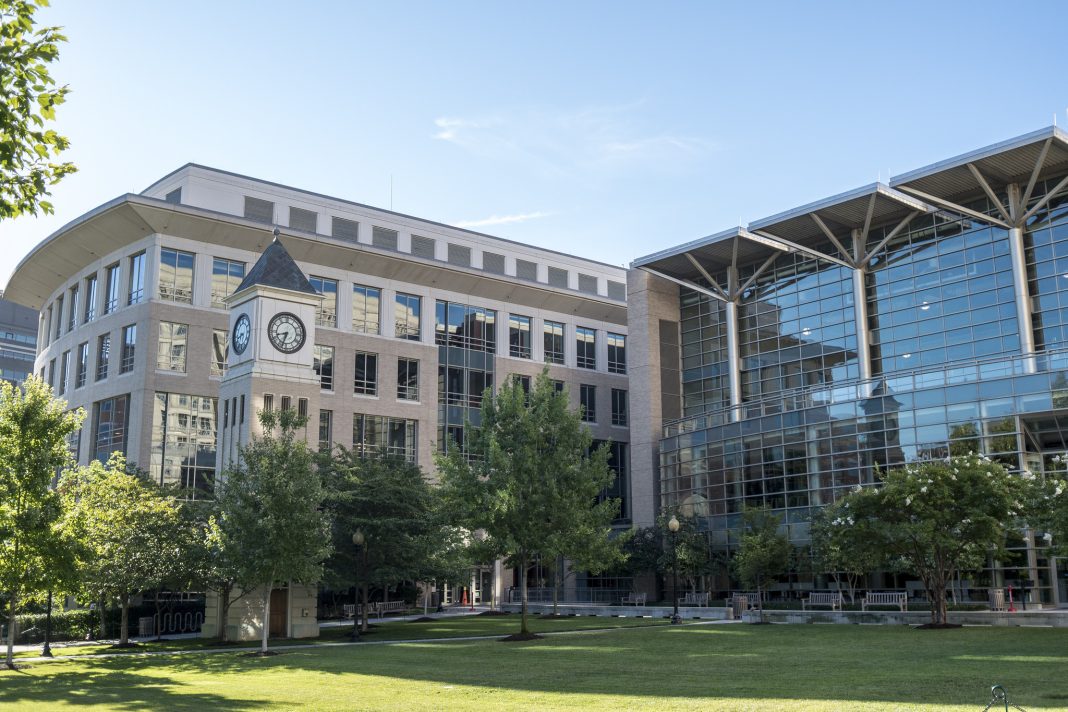When Harvard Law School began accepting the GRE in its admissions process, legal insiders accurately predicted that more law schools would follow.
Earlier this month, Georgetown University Law Center and Northwestern University Pritzker School of Law announced they would begin accepting the GRE in the coming year. Both law schools share similar goals: attracting a more diverse applicant pool, finding more students with science, technology, engineering and math backgrounds, and reducing barriers to entry.
“While the LSAT remains an important admissions tool, we also believe that it is well past time that the legal profession open wide the doors to an even more diverse population that better reflects American society as a whole,” said Andy Cornblatt, Georgetown Law Dean of Admissions. “We think that allowing the use of the GRE will help us to accomplish that goal.”
Law schools find the GRE attractive for several reasons. First, accepting the GRE allows international students applying to U.S. graduate programs to submit their scores for law school admissions. Second, a greater percentage of minorities take the GRE over the LSAT. Lastly, STEM students applying to graduate programs may also be interested in law school. Allowing these students to submit their GRE scores reduces the time and cost associated with taking both entrance exams.
“Georgetown Law is committed to attracting the best and the brightest students of all backgrounds,” said Georgetown Law Dean William M. Treanor. “We believe this change will make the admissions process more accessible to students who have great potential to make a mark here at Georgetown Law and in successful legal careers, but who might find the LSAT to be a barrier for whatever reason.”
The GRE also tests quantitative reasoning in addition to qualitative reasoning, allowing applicants to demonstrate a more diverse skill set.
“Gaining access to GRE test-takers, many of whom are engineers, scientists and mathematicians, could benefit Northwestern Law and the legal profession at large by diversifying the applicant pool,” Daniel Rodriguez, dean and Harold Washington Professor at Northwestern Law said. “Additionally, the GRE is offered a number of times throughout the year and in locations worldwide, making it easily accessible for prospective students.”
Until recently, the LSAT has been the only standardized test accepted by law schools. The exam has been repeatedly tested and proven to be a reliable indicator of academic performance in law school. Still, the American Bar Association does not prohibit the use of other standardized tests under its current guidelines. Law schools are allowed to determine which tests they use in the admission process, so long as the schools find tests to be “valid and reliable.”
Before Georgetown Law and Northwestern Law announced their decisions to accept the GRE, the law schools conducted internal studies to determine whether the GRE was valid and reliable. The results indicated that GRE scores were at least as strong as a predictor of academic success as LSAT scores. A similar study at Harvard Law reached the same conclusion.
Proposed changes to the current ABA guidelines could prevent more law schools from accepting the GRE. The ABA Council on Legal Education is considering revisions that would give the ABA sole discretion over which tests are valid and reliable.
Photo by Phil Roeder

